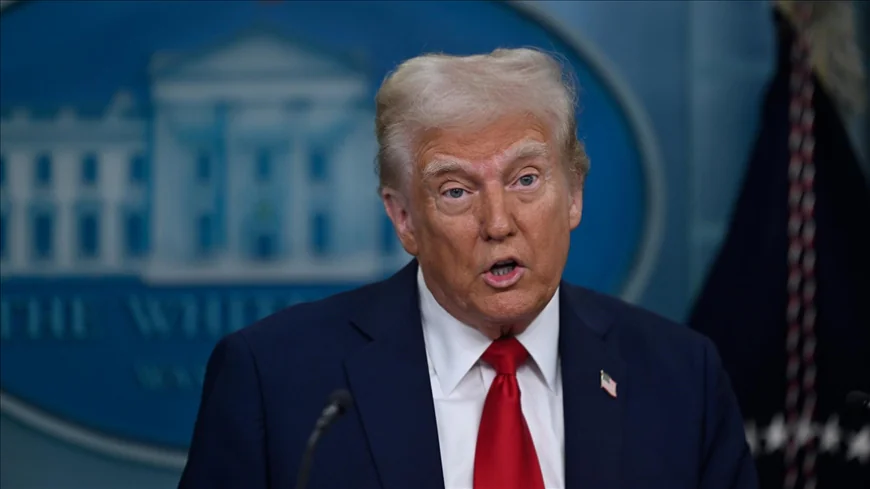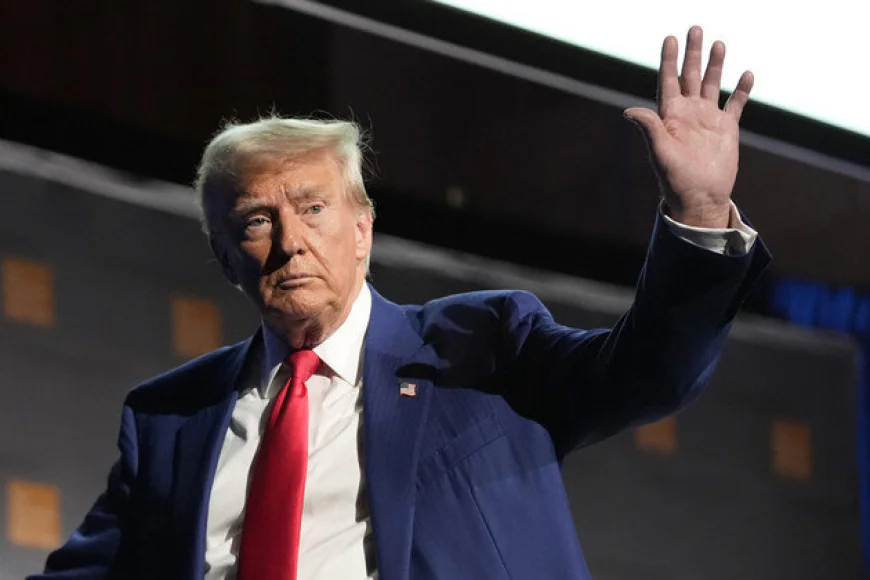Trump's broad tariffs are blocked by US trade courts. What next?
President Donald Trump's broad tariffs have been blocked by a US federal court, so severely undermining a pillar of his economic policies. The Court of International Trade decided that an emergency law the White House invoked lacked unilateral presidential power to impose tariffs on almost every country.

President Donald Trump's broad tariffs have been blocked by a US federal court, so severely undermining a pillar of his economic policies. The Court of International Trade decided that an emergency law the White House invoked lacked unilateral presidential power to impose tariffs on almost every country.
The court based in Manhattan said that Congress's exclusive authority to control trade with other countries came from the US Constitution and that the president's remit to protect the economy did not supersede this.
Within minutes of the decision, the Trump team filed an appeal.
What was the outcome of the court case?
Two different cases formed the foundation of the decision. While a coalition of US state governments also challenged the import taxes, the nonpartisan Liberty Justice Center brought a lawsuit on behalf of several small businesses importing goods from nations targeted by the duties.

The two cases represent the first significant judicial challenges to Trump's so-called "Liberation Day" tariffs.
The International Emergency Economic Powers Act (IEEPA), a 1977 statute Trump referenced to defend the tariffs, does not give him the authority to impose the broad import taxes, according to a three-judge panel ruling.
In response to what the court said was the unacceptable flow of drugs and illegal immigrants into the US, the Trump administration also imposed separate levies on China, Mexico, and Canada. The court also blocked these levies.
The court was not asked to handle tariffs imposed on some particular items, including cars, steel, and aluminum, which fall under another legislation, though.
Up to now, what has the reaction been?
Though Trump has not yet commented personally, the White House has attacked the decision.
"It is not for unelected judges to decide how properly to address a national emergency," White House deputy press secretary Kush Desai said in a statement.
"President Trump promised to put America first; the administration is committed to using every lever of executive power to address this crisis and restore American greatness," he said. One of the twelve states engaged in the lawsuit, New York's attorney general Letitia James approved of the ruling. "The law is clear: no president has the power to single-handedly raise taxes whenever they like," Letitia James remarked.
She said, "These tariffs are a massive tax hike on working families and American businesses that would have led to more inflation, economic damage to businesses of all sizes, and job losses across the country if allowed to continue."
Global markets have responded favorably to the decision. Thursday morning saw Asian stock markets rise; US stock futures also surged; the US dollar gained value against safe-haven peers, including the Japanese yen and Swiss franc.
What Next?
Though most are now suspended anyway, the White House has ten days to finish the bureaucratic process of stopping the taxes. The matter must pass through the appeals system. Should the White House fail in its appeal, the US Customs and Border Protection Agency (CBP) will then provide instructions to John Leonard, a former top official there, told the BBC.
Said differently, a higher court could be more Trump-friendly. On the other hand, companies that have had to pay tariffs will get refunds on the amounts paid with interest should all courts maintain the decision. These include the so-called reciprocal tariffs, which were lowered to 10% generally for most nations and raised to 145% on Chinese goods, now 30%.
Mr. Leonard said tariffs still have to be paid, and there won't be any changes at the border for now. According to Stephen Innes at SPI Asset Management in a commentary, market reactions revealed, partly, investors "exhaling after weeks of white-knuckle volatility sparked by trade war brinkmanship."
"The Oval Office isn't a trading desk, and the Constitution isn't a blank cheque," Mr. Innes said US judges made plain. "Executive overreach might at last have its ceiling found. And with it, at least until the next headline, a fresh dosage of macro stability.
From Capital Economics, Paul Ashworth remarked on the decision,"will obviously throw clearly into disarray the Trump administration's push to quickly seal trade 'deals' during the 90-day pause from tariffs." He foresaw other nations "waiting and seeing" future events.


